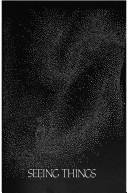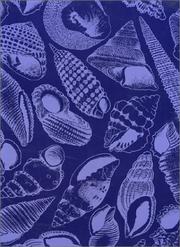| Listing 1 - 10 of 33 | << page >> |
Sort by
|
Book
ISBN: 9783110472363 3110472368 3110472392 3110473372 9783110473377 9783110472394 Year: 2016 Publisher: De Gruyter
Abstract | Keywords | Export | Availability | Bookmark
 Loading...
Loading...Choose an application
- Reference Manager
- EndNote
- RefWorks (Direct export to RefWorks)
The portrayal of princes plays a central role in the historical literature of the European Renaissance. The sixteen contributions collected in this volume examine such portrayals in a broad variety of historiographical, biographical, and poetic texts. It emerges clearly that historical portrayals were not essentially bound by generic constraints but instead took the form of res gestae or historiae, discrete or collective biographies, panegyric, mirrors for princes, epic poetry, orations, even commonplace books ? whatever the occasion called for. Beyond questions of genre, the chapters focus on narrative strategies and the transformation of ancient, medieval, and contemporary authors, as well as on the influence of political, cultural, intellectual, and social contexts. Four broad thematic foci inform the structure of this book: the virtues ascribed to the prince, the cultural and political pretensions inscribed in literary portraits, the historical and literary models on which these portraits were based, and the method that underlay them. The volume is rounded out by a critical summary that considers the portrayal of princes in humanist historiogrpahy from the point of view of transformation theory.
Renaissance --- Europe --- Kings and rulers --- Historiography --- Kings and rulers in literature. --- Humanists --- Rois et souverains --- Rois et souverains dans la littérature --- Humanistes --- History --- Histoire --- Congresses. --- Congrès --- Historiographie --- Rois et souverains dans la littérature --- Congrès --- History. --- Literature, Medieval --- Literature, Modern --- History and criticism. --- Europe. --- Council of Europe countries --- Eastern Hemisphere --- Eurasia --- Renaissance humanism. --- biography. --- epic. --- historiography.
Book
ISBN: 1316355675 1316362078 1316364070 1316365077 1316363074 1316282317 1316358674 1107111862 1107530695 1316349675 Year: 2015 Publisher: Cambridge : Cambridge University Press,
Abstract | Keywords | Export | Availability | Bookmark
 Loading...
Loading...Choose an application
- Reference Manager
- EndNote
- RefWorks (Direct export to RefWorks)
This important study takes a new approach to understanding Italian Renaissance humanism, based not on scholarly paradigms or philosophical concepts but on a neglected yet indispensable perspective: the humanists' understanding of themselves. Through a series of close textual studies, Patrick Baker excavates what humanists thought was important about humanism, how they viewed their own history, what goals they enunciated, what triumphs they celebrated - in short, he attempts to reconstruct humanist identity. What emerges is a small, coherent community dedicated primarily not to political ideology, a philosophy of man, an educational ethos, or moral improvement, but rather to the pursuit of classical Latin eloquence. Grasping the significance this stylistic ideal had for the humanists is essential to understanding both their sense of themselves and the importance they and others attached to their movement. For eloquence was no mere aesthetic affair but rather appeared to them as the guarantor of civilisation itself.
Renaissance --- Humanism --- Eloquence in literature. --- Latin language. --- Classical languages --- Italic languages and dialects --- Classical philology --- Latin philology --- Philosophy --- Classical education --- Philosophical anthropology --- Revival of letters --- Civilization --- History, Modern --- Civilization, Medieval --- Civilization, Modern --- Middle Ages --- History. --- History
Book
ISBN: 9789004336032 9789004339750 9004339752 9004336036 Year: 2017 Publisher: Leiden Brill
Abstract | Keywords | Export | Availability | Bookmark
 Loading...
Loading...Choose an application
- Reference Manager
- EndNote
- RefWorks (Direct export to RefWorks)
By way of essays and a selection of primary sources in parallel text, Biography, Historiography, and Modes of Philosophizing provides an introduction to a vast, significant, but neglected corpus of early modern literature: collective biography. It focuses especially on the various related strands of political, philosophical, and intellectual and cultural biography as well as on the intersection between biography, historiography, and philosophy. Individual texts from the fifteenth to the eighteenth century are presented as examples of how the ancient collective biographical tradition – as represented above all by Plutarch, Suetonius, Diogenes Laertius, and Jerome – was received and transformed in the Renaissance and beyond in accordance with the needs of humanism, religious controversy, politics, and the development of modern philosophy and science.
Non-fiction --- anno 1500-1799 --- anno 1400-1499 --- Biography --- Historiography --- Biography as a literary form --- European literature --- Social aspects --- History. --- Philosophy. --- History and criticism. --- Europe --- History
Book
ISBN: 2920123106 Year: 1992 Publisher: Québec Ed. du Sphinx
Abstract | Keywords | Export | Availability | Bookmark
 Loading...
Loading...Choose an application
- Reference Manager
- EndNote
- RefWorks (Direct export to RefWorks)
Book
ISBN: 9781107111868 9781107530690 9781316282311 Year: 2015 Publisher: Cambridge Cambridge University Press
Abstract | Keywords | Export | Availability | Bookmark
 Loading...
Loading...Choose an application
- Reference Manager
- EndNote
- RefWorks (Direct export to RefWorks)
Book
ISBN: 9004339752 Year: 2017 Publisher: Leiden, Netherlands ; Boston, [Massachusetts] : Brill,
Abstract | Keywords | Export | Availability | Bookmark
 Loading...
Loading...Choose an application
- Reference Manager
- EndNote
- RefWorks (Direct export to RefWorks)
By way of essays and a selection of primary sources in parallel text, Biography, Historiography, and Modes of Philosophizing provides an introduction to a vast, significant, but neglected corpus of early modern literature: collective biography. It focuses especially on the various related strands of political, philosophical, and intellectual and cultural biography as well as on the intersection between biography, historiography, and philosophy. Individual texts from the fifteenth to the eighteenth century are presented as examples of how the ancient collective biographical tradition – as represented above all by Plutarch, Suetonius, Diogenes Laertius, and Jerome – was received and transformed in the Renaissance and beyond in accordance with the needs of humanism, religious controversy, politics, and the development of modern philosophy and science.
Biography --- Historiography --- Biography --- Historiography --- Biography --- Biography as a literary form --- European literature --- Social aspects --- History. --- Social aspects --- History. --- Philosophy. --- Philosophy. --- History and criticism. --- History. --- History and criticism. --- Europe --- History
Book
ISBN: 9782503529608 2503529607 Year: 2011 Volume: 8 Publisher: Turnhout : Brepols,
Abstract | Keywords | Export | Availability | Bookmark
 Loading...
Loading...Choose an application
- Reference Manager
- EndNote
- RefWorks (Direct export to RefWorks)
"Hermetic theosophy, originally an offspring of Egyptian religion, spread throughout the ancient world from the Hellenistic age onwards and was welcomed by Christianity in Late Antiquity. Cultivated people in a Christian milieu were convinced that Hermetic piety and religion were the preparation, expressed by heathen imagery, of their own faith: Hermes, a wise and pious philosopher in Egypt in the time of Moses, received (so it was thought) the same revelation which would be manifested 1,000 years later by Christ. At the end of the third century AD, this belief did not perish with the end of the Roman Empire; rather, it was taken up and explored during the French Renaissance of the twelfth century. In the fifteenth century, Italian humanism, supported by the rediscovery of Greek language and literature, promoted a fresh new evaluation of the ancient Hermetic texts which continued to be considered and studied as pre-Christian documents. In the sixteenth century, new interpretations of Christian Hermetism were explored until this connection between pagan and Christian was increasingly criticized by scholars who argued that Hermetism was neither as ancient as was thought nor as close to Christianity. The theory was abandoned in scientific milieux from the seventeenth century onwards, whereas Hermetic theosophy, on the contrary, survived in esoteric circles"--P. [4] of cover.
Hermetism --- Occultism --- Hermétisme --- Occultisme --- History. --- Religious aspects --- Christianity. --- Histoire --- Aspect religieux --- Christianisme --- Hermes, --- -Occultism --- -133 --- Art, Black (Magic) --- Arts, Black (Magic) --- Black art (Magic) --- Black arts (Magic) --- Occult, The --- Occult sciences --- Religions --- Supernatural --- New Age movement --- Parapsychology --- Hermeticism --- -Christianity. --- Occulte wetenschappen. Geheime leer. Occultisme --- Hermetism. --- 133 Occulte wetenschappen. Geheime leer. Occultisme --- Hermétisme --- History --- Christianity --- Hermes Trismegistus --- Religious aspects -&delete& --- -Christianity --- -History

ISBN: 0394497392 Year: 1976 Publisher: New York (N.Y.): Random House
Abstract | Keywords | Export | Availability | Bookmark
 Loading...
Loading...Choose an application
- Reference Manager
- EndNote
- RefWorks (Direct export to RefWorks)
Book
ISBN: 9004461884 9004463410 Year: 2022 Publisher: Leiden, The Netherlands ; Boston : Brill,
Abstract | Keywords | Export | Availability | Bookmark
 Loading...
Loading...Choose an application
- Reference Manager
- EndNote
- RefWorks (Direct export to RefWorks)
Habent sua fata libelli honors the work of Craig Kallendorf, offering studies in several fields in which he chiefly distinguished himself: the history of the book and reading, the classical tradition and reception studies, Renaissance humanism, and Virgilian scholarship with a special focus on the creative transformation of the Aeneid through the centuries. The volume is rounded out by an appreciation of Craig Kallendorf, including a review of his scholarship and its significance. In addition to the topics mentioned above, the volume's twenty-five contributions by scholars in America and Europe are of relevance to those working in the fields of classical philology, Neo-Latin, political philosophy, poetry and poetics, printing and print culture, Romance languages, art history, translation studies, and Renaissance and early modern Europe generally. Contributors include: Alessandro Barchiesi, Susanna Braund, Hélène Casanova-Robin, Jean-Louis Charlet, Federica Ciccolella, Ingrid De Smet, Margaret Ezell, Edoardo Fumagalli, Julia Gaisser, Lucia Gualdo Rosa, James Hankins, Andrew Laird, Marc Laureys, John Monfasani, Timothy Moore, Colette Nativel, Marianne Pade, Lisa Pon, Wayne Rebhorn, Alden Smith, Sarah Spence, Fabio Stok, Richard Thomas, and Marino Zorzi.
Classical philology. --- Humanism. --- Virgil --- Criticism and interpretation.

ISBN: 0646152254 9780646152257 0646152262 9780646152264 0646152270 9780646152271 Year: 1993 Publisher: Leederville, W.A. Odyssey Pub.
Abstract | Keywords | Export | Availability | Bookmark
 Loading...
Loading...Choose an application
- Reference Manager
- EndNote
- RefWorks (Direct export to RefWorks)
| Listing 1 - 10 of 33 | << page >> |
Sort by
|

 Search
Search Feedback
Feedback About UniCat
About UniCat  Help
Help News
News